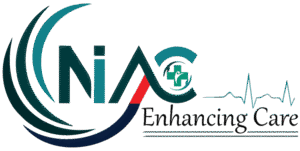Empowering Everyday Heroes: The Vital Role of Basic Life Support
Basic Life Support (BLS). Often the first line of defense in emergencies, BLS is not just a set of skills; it is a beacon of hope wielded by everyday heroes. Let’s explore the vital role of Basic Life Support, the gateway to saving lives in critical moments.
Foundations of Basic Life Support:
Basic Life Support is the cornerstone of emergency care, providing immediate assistance to individuals facing life-threatening situations. Rooted in simplicity yet possessing profound impact, BLS techniques are designed for anyone, regardless of medical expertise, to administer crucial aid until professional help arrives.
The ABCs of BLS:
At the core of BLS lies a simple yet systematic approach encapsulated in the ABCs — Airway, Breathing, and Circulation. Initiating with checking the Airway for obstructions, assessing Breathing, and ensuring Circulation through chest compressions forms the fundamental triad that can make a life-or-death difference in critical moments.
Empowering Everyday Heroes:
One of the remarkable aspects of BLS is its accessibility to everyone. You don’t need to be a medical professional to be a hero. BLS empowers individuals from all walks of life — parents, teachers, coworkers, and bystanders — to step in as first responders during emergencies, bridging the crucial gap until professional medical assistance arrives.
Hands-Only CPR: Making a Difference:
Cardiopulmonary Resuscitation (CPR) is a central component of BLS, and the concept of Hands-Only CPR has emerged as a game-changer. Simplifying the process, it emphasizes uninterrupted chest compressions to maintain blood circulation, making it more likely for bystanders to step in and provide immediate aid.
Defibrillation: Shocking Moments to Save Lives:
In certain emergencies, the use of automated external defibrillators (AEDs) becomes paramount. BLS training includes the proper use of AEDs, empowering individuals to deliver electric shocks when necessary, restoring the heart’s rhythm and significantly improving the chances of survival in cases of sudden cardiac arrest.
Training for Preparedness:
While BLS techniques are simple, proper training is essential. BLS courses are widely available, equipping individuals with the skills and confidence needed to respond effectively to emergencies. These courses cover not only CPR and AED use but also the crucial aspects of recognizing signs of distress and activating emergency medical services.
BLS for Caregivers: Essential Skills for Everyday Heroes:
When we think of heroes, we often picture caped crusaders or action movie stars. But let’s be real: the true heroes are often those who care for others every day. Whether you’re a family member, a friend, or a professional caregiver, your role is vital. One of the most important skills you can have is Basic Life Support (BLS). This is not just a certification; it’s a lifeline. So, let’s dive into why BLS is essential for caregivers like you.
BLS training is not just for medical professionals:
It’s designed for everyday heroes like you. You may think, “I’m just a caregiver; I don’t need to know this.” But the truth is, emergencies can happen anywhere, anytime. Whether you’re at home, in a park, or at a family gathering, being prepared can mean the difference between life and death. So, don’t underestimate your ability to make a significant impact with the right knowledge.
Key BLS Skills Every Caregiver Should Master:
Now that you know why BLS is crucial, let’s talk about the specific skills you should master. First up is CPR, or cardiopulmonary resuscitation. This technique can help keep blood flowing to vital organs when someone’s heart stops. Learning how to perform chest compressions and rescue breaths is empowering. You’ll feel more prepared to handle emergencies, and that confidence can be contagious!
The Joy of Being Prepared:
There’s something wonderfully reassuring about being prepared. Think of it as having a superhero toolkit. When you know BLS, you’re not just a caregiver; you’re a prepared caregiver. You’re equipped to handle emergencies with grace and poise. Plus, the skills you learn can extend beyond your caregiving duties. You’ll find yourself more aware of safety practices in everyday life, from cooking to outdoor activities.
Being trained in BLS can also create a sense of community. You might find yourself encouraging friends and family to take a class with you. Imagine the bonding experience of learning these essential skills together! You’ll not only be enhancing your own abilities but also creating a network of prepared individuals who can support one another in times of need. Who knows, you might even inspire someone to become a caregiver themselves!
So, what are you waiting for? If you haven’t already, consider enrolling in a BLS course. Many organizations offer classes that fit your schedule. You’ll learn from experienced instructors and practice hands-on techniques. Plus, you’ll walk away with a certification that showcases your commitment to safety and care. Being a caregiver is a noble calling, and having BLS skills makes you an even bigger hero in your loved ones’ eyes.
Community Impact:
The ripple effect of BLS extends beyond individual responses. Communities that prioritize BLS training create a network of preparedness. Schools, workplaces, and public spaces that champion BLS training contribute to a culture of safety, fostering a community of everyday heroes ready to respond when seconds count.
Conclusion:
In the delicate balance between life and its fragility, Basic Life Support emerges as a powerful force, turning ordinary individuals into heroes. By arming ourselves with the fundamental ABCs of BLS, we become stewards of life, ready to intervene in critical moments. BLS is more than a set of skills; it is a collective commitment to creating a world where everyone has the potential to be a lifesaver, making each community a safer and more resilient haven for all.


